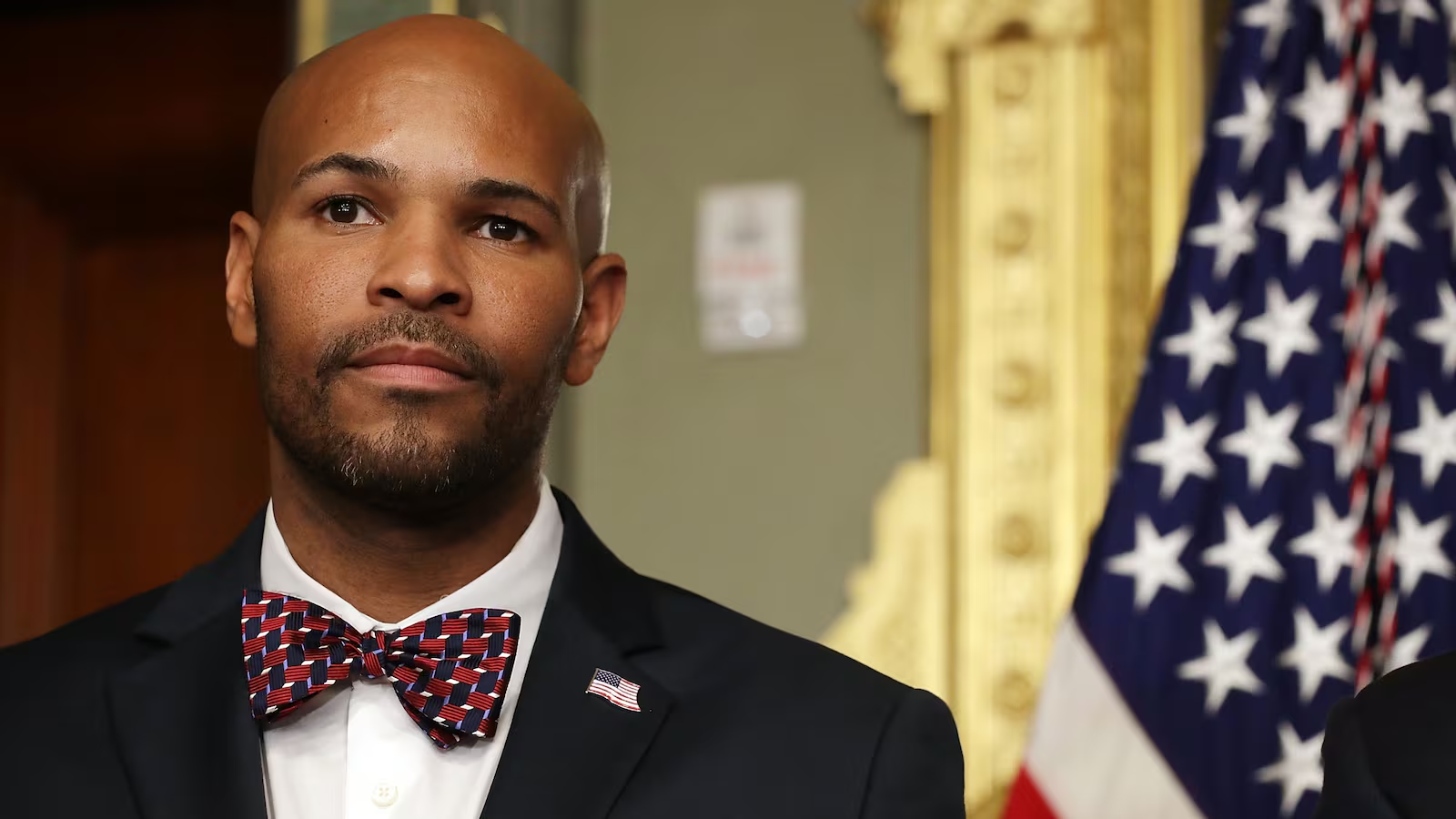In a sharply worded op-ed published on CNN, former U.S. Surgeon General Dr. Jerome Adams criticized Health and Human Services (HHS) Secretary Robert F. Kennedy Jr. for his role in promoting vaccine skepticism during a growing measles outbreak along the Texas-New Mexico border. Dr. Adams, who served as Surgeon General under former President Donald Trump, emphasized that Kennedy’s past rhetoric against vaccines and the lingering distrust sown by his nonprofit, Children’s Health Defense, have played a significant role in undermining public confidence in vaccinations.
The outbreak, which has affected communities in Texas’ Mennonite population, demonstrates how quickly measles can spread when herd immunity—a protective shield built by maintaining high vaccination rates—is weakened. Adams highlighted the dangers of vaccine hesitancy, stressing that communities like the one at the heart of this outbreak are particularly vulnerable when vaccination rates decline.
Measles, once a common childhood illness in the U.S., was declared eliminated in 2000 thanks to widespread vaccination campaigns. However, public health experts warn that this success has inadvertently led to collective complacency. Many Americans, Adams argued, no longer recognize how severe and life-threatening measles can be. This fading memory, coupled with rising vaccine skepticism, has allowed outbreaks to resurface in under-vaccinated areas.
“I think not only have we largely eliminated measles, we’ve eliminated the memory of measles,” Adams wrote, quoting the director of the Vaccine Education Center at the Children’s Hospital of Philadelphia. “I don’t think people remember just how sick measles can make you.”
Measles is far more dangerous than a mild rash. It can cause severe complications, including pneumonia, encephalitis, and, in some cases, death. Without the protective buffer of herd immunity, even a single infected person can trigger a chain reaction of transmission, especially in close-knit or isolated communities.
A major focus of Adams’ criticism is RFK Jr.’s contradictory statements and evolving position on vaccines. For years, Kennedy has been a prominent figure in the anti-vaccine movement, with his organization, Children’s Health Defense, promoting claims that question vaccine safety. This history, Adams argued, has made Kennedy a key driver of today’s vaccine skepticism.
During the early days of the measles outbreak, Kennedy downplayed its seriousness, calling it “not unusual” at Trump’s first cabinet meeting. However, as the crisis deepened and public pressure mounted, Kennedy shifted his stance. In a Fox News op-ed titled “Measles outbreak is a call to action for all of us,” he urged Americans to take the outbreak seriously and get vaccinated—a dramatic departure from his earlier rhetoric.
Adams, however, remained skeptical of Kennedy’s change in tone, suggesting that his years of promoting vaccine misinformation have already done significant damage. Rebuilding public trust, Adams noted, will require more than a single op-ed; it will depend on consistent, science-based leadership moving forward.
Adams’ concerns are echoed by infectious disease specialists nationwide. The current measles outbreak serves as a stark reminder of what can happen when vaccination rates drop. Unlike diseases that spread slowly, measles is highly contagious and can rapidly affect entire communities.
In his op-ed, Adams warned that the recent outbreak should be a wake-up call for both policymakers and the public. He emphasized that vaccine hesitancy is not just a personal choice—it has broader consequences for community health. Individuals who choose not to vaccinate put not only themselves at risk but also vulnerable populations, such as infants, the elderly, and immunocompromised individuals who cannot be vaccinated.
As the measles outbreak continues to spread, Dr. Adams urged leaders like RFK Jr. to take decisive action to reverse the tide of misinformation. Public health experts agree that restoring trust in vaccines will require clear communication, transparency, and ongoing education efforts. This includes dispelling myths about vaccine safety, highlighting the benefits of immunization, and addressing the fears that fuel vaccine hesitancy.
Adams concluded his op-ed by underscoring the urgency of the situation: “Kennedy’s legacy will depend more on what he does about the measles outbreak now than on his words in the past.” His message is clear—actions, not rhetoric, will determine the future of public health in America.
The resurgence of measles in the U.S. is a sobering reminder of the dangers posed by vaccine hesitancy. As leaders, public health officials, and communities grapple with the current outbreak, the focus must remain on science-based solutions and the collective responsibility to protect one another through vaccination. Dr. Jerome Adams’ critique of RFK Jr. highlights the critical role of leadership in addressing public health crises and rebuilding trust in lifesaving vaccines.


